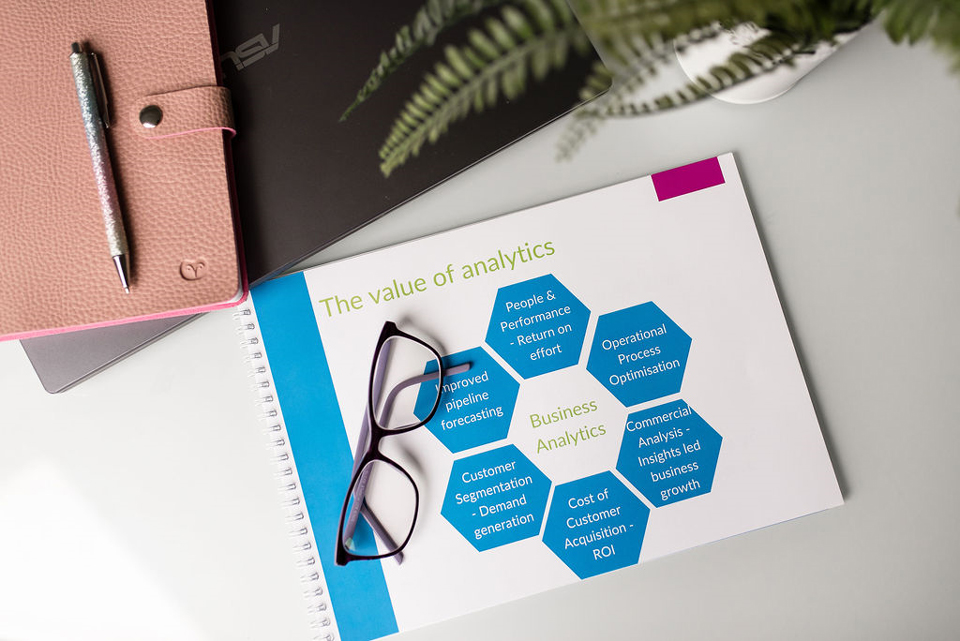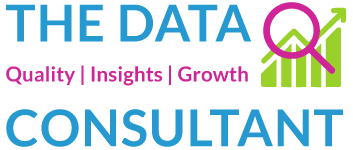Data Insights

In today’s data-rich environment, businesses that leverage data-driven insights have a significant advantage over their competitors. At The Data Consultant, we specialise in helping organisations extract actionable insights from their data to fuel growth, innovation, and success.
“Data-driven insights are the key to unlocking hidden opportunities and driving sustainable growth in today’s digital economy.”
Bernard Marr, Author and Data Expert
Data-driven insights
Data-driven insights are the information that businesses derive from raw data, enabling them to make strategic and informed decisions. Every day, companies accumulate vast amounts of raw data, from customer purchasing details to marketing analytics. However, this raw data is often complex and challenging to interpret directly.
The key to unlocking its potential lies in the effective collection, integration, and analysis of this data. Through these processes, businesses can transform raw data into clear, actionable insights. These insights are not merely numbers or charts; they are valuable conclusions that guide strategic decision-making, turning data into a powerful asset for any company.
“Data is what you need to do analytics, information is what you need to do business”
Why Embrace Data-Driven Insights?
Actionable Intelligence:
Data-driven insights provide valuable information that enables organisations to make informed decisions, identify opportunities, and mitigate risks.
Competitive Advantage:
Companies that use data-driven insights are 2.5 times more likely to have a significant competitive advantage in the marketplace.
Customer Understanding:
By analysing customer data, organisations gain deeper insights into customer behaviour, preferences, and needs, allowing for more personalised and targeted marketing strategies.
Operational Efficiency:
Data-driven insights can uncover inefficiencies in business processes, leading to cost savings, improved productivity, and streamlined operations.
Work with me to improve your business this year…
1.
Revenue Growth and Competitive Advantage:
A service-oriented business utilises analytics to understand customer preferences. This enables personalised offerings and targeted marketing campaigns. Ultimately, it helps the business stay ahead of competitors and drive revenue growth.
2.
Enhanced Efficiency and Cost Reduction:
A manufacturing company uses data insights to pinpoint inefficiencies in its production process. This streamlines operations and reduces unnecessary costs, leading to increased overall efficiency.
3.
Informed Decision-Making:
A recruitment agency or talent acquisition team can use analytics to assess the effectiveness of various candidate sourcing channels. They analyse data on candidate sources and placement success rates. Then, the business makes data-driven decisions to allocate resources to the most productive channels. This improves the overall quality of talent acquisition.
Data Literacy Workshop
Elevate Your Decision Making and Unlock the Power of Data Visualisation
Join Our Workshop.
Unlock the Power of Data Visualisation
Here are the five key areas of data analytics that will provide actionable insights for your business:
Business Intelligence (BI):
- Dashboard and Reporting: Implement BI tools to create interactive dashboards and reports that visualise key performance indicators (KPIs) and other relevant metrics. This helps in monitoring the overall health of the business and identifying trends.
- Data Exploration: Enable users to explore and analyse data easily, allowing them to discover patterns, correlations, and insights that can inform strategic decision-making.
Customer Analytics:
- Customer Segmentation: Analyse customer data to identify segments based on demographics, behaviour, and preferences. This enables targeted marketing and personalised customer experiences.
- Churn Analysis: Use analytics to understand customer churn patterns and implement strategies to retain valuable customers. Identify factors contributing to churn and take proactive measures to address them.
Operational Analytics:
- Supply Chain Optimisation: Analyse data related to supply chain and inventory management to optimise processes, reduce costs, and improve efficiency.
- Process Efficiency: Use analytics to identify bottlenecks and inefficiencies in various business processes, enabling the streamlining of operations and resource allocation.
Financial Analytics:
- Budgeting and Forecasting: Leverage financial analytics to create accurate budgets and forecasts. This helps in aligning financial goals with overall business objectives.
- Profitability Analysis: Analyse financial data to understand the profitability of products, services, and business units. Identify opportunities to enhance revenue and reduce costs.
Marketing Analytics:
- Campaign Performance: Analyse the effectiveness of marketing campaigns by tracking metrics such as conversion rates, customer acquisition costs, and return on investment (ROI).
- Digital Analytics: Utilise web and social media analytics to understand online customer behaviour, optimise digital marketing strategies, and enhance the online user experience
